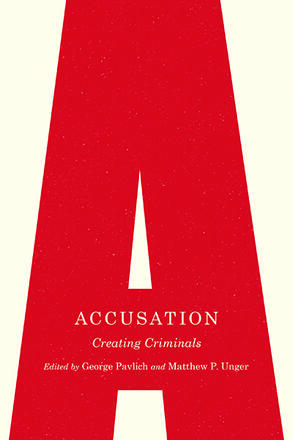
This interdisciplinary collection challenges conventional views on crime and criminals, examining how ideas and rituals of criminal accusation produce both accusers and accused.
Description
Much critical scholarship has detailed the punitive effects of accusations that lead to criminalization. Less well documented is the founding role that accusation plays in creating potential criminals. In an attempt at redress, this collection foregrounds how ideas and rituals of accusation initiate criminalization processes. It offers various perspectives on the mechanisms by which legal persons come to be identified as suitable subjects for criminal justice arenas. By analyzing how criminal accusation operates in theoretical, historical, socio-legal, criminological, political, cultural, and procedural realms, this book launches an important new field of inquiry.
Reviews
This essay collection from UBC Press, with its clever, simple cover of a large red A, asks us to consider what accusation really means, and how it can be used as a weapon.
- Amy Kaufman, Head Law Librarian, Queen’s University
With numerous challenges plaguing the modern criminal justice system, it is important to understand where these challenges originate. Accusation provides a philosophical and ideological understanding of the role of accusation in the origin and structuring of modern systems that would be of interest to a variety of criminal justice scholars. Through this deeper understanding, Accusation invites the development of a new approach to criminal justice and the reframing of accusation to address the way subjects enter and interact with these modern systems.
- Meagan Ward